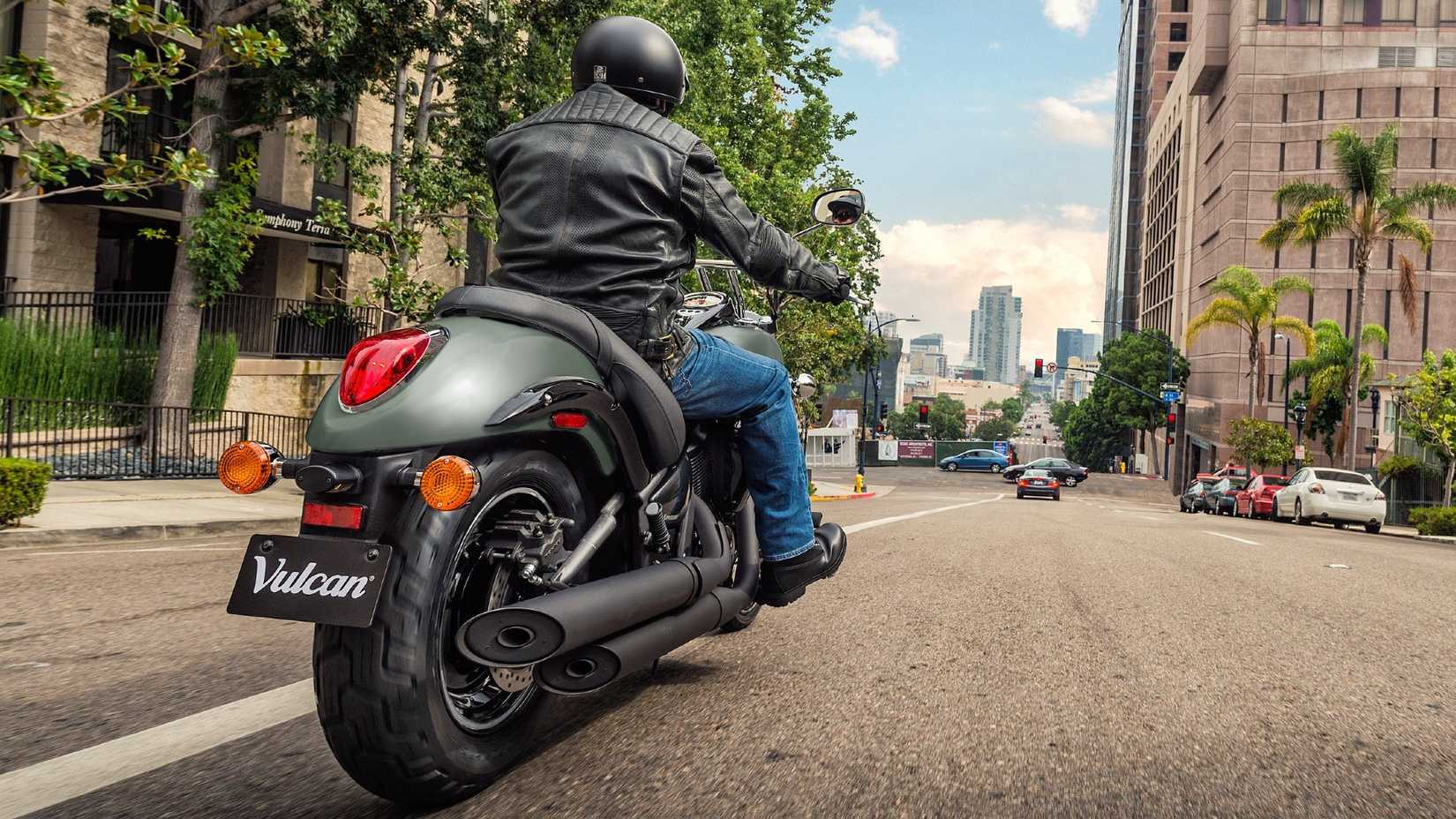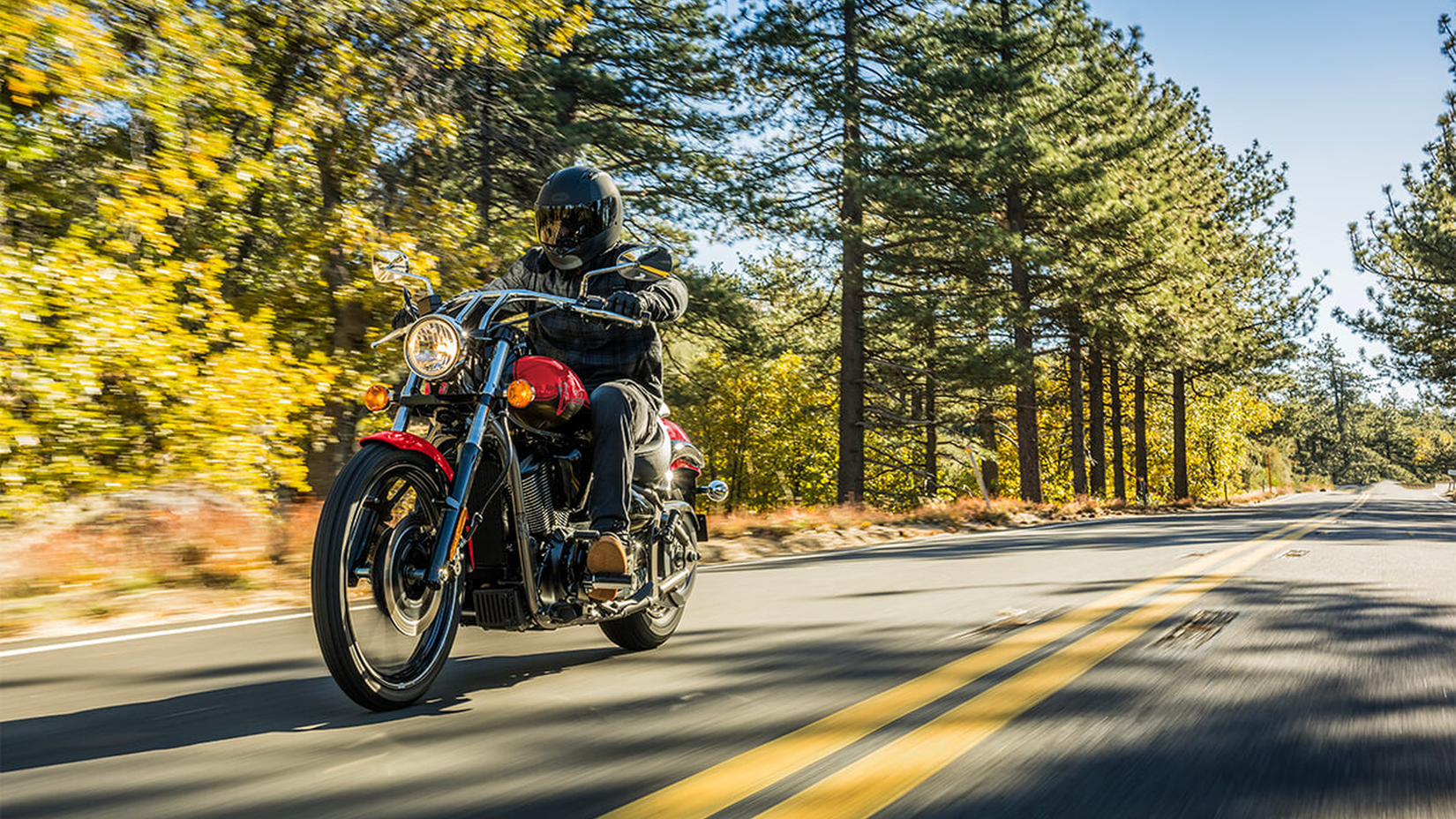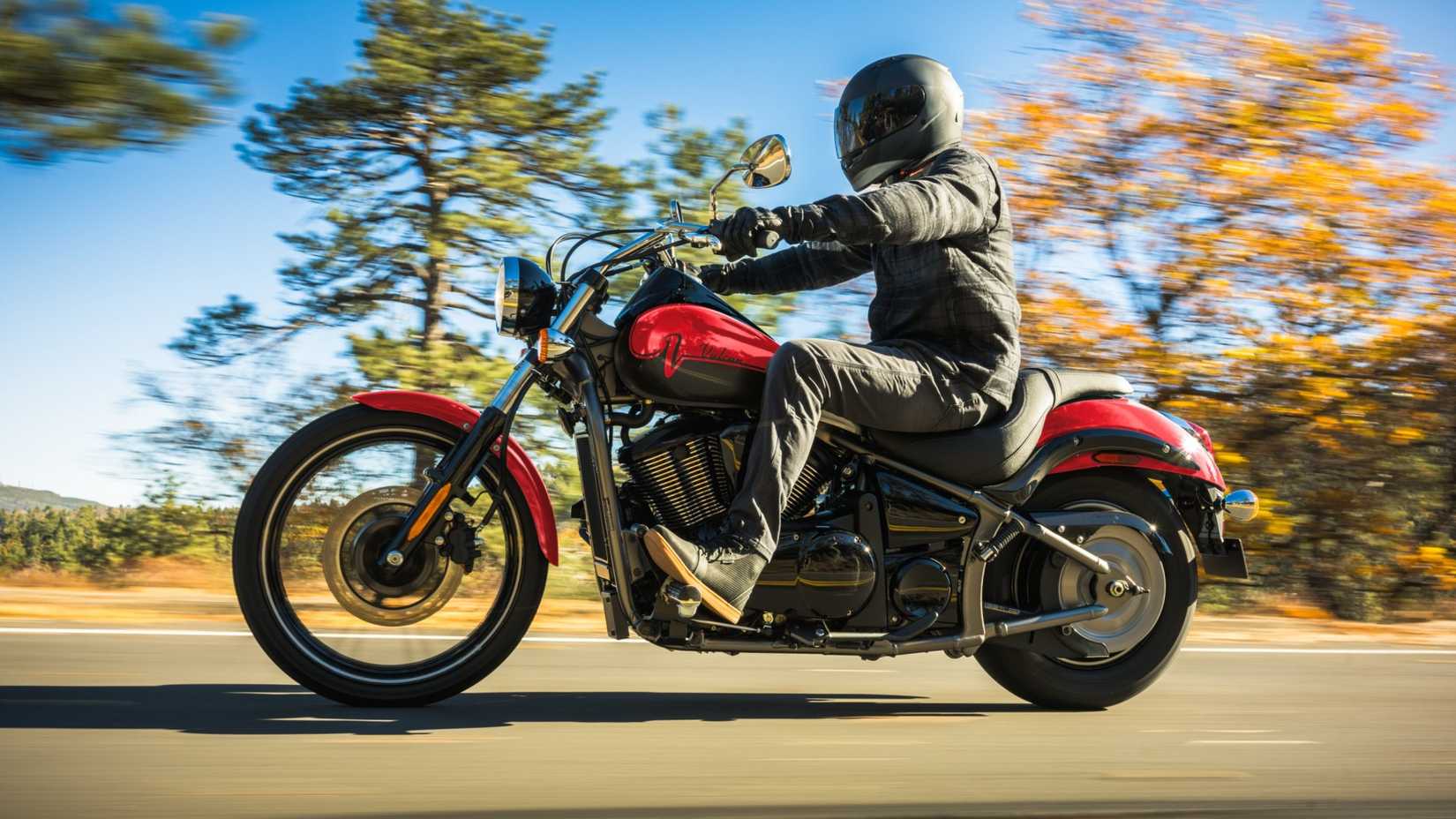When you hear ‘Kawasaki’, you immediately think of fire-breathing Ninja superbikes. But the brand has dipped its toes in nearly all other segments as well. One of its weakest segments, though, has been cruiser motorcycles. In fact, the only global cruisers in its lineup are the Eliminator and Vulcan S.
So, for this story, we didn’t have many bikes to choose from in the first place, and the list became even shorter when we took ‘V-twin’ into consideration. That’s because the bikemaker only has three V-twin cruisers on sale, out of which there is only one that comes close to justifying the “aggressive-looking” tag.
To give you the most up-to-date and accurate information possible, the data used to compile this article was sourced from authoritative sources, such as Kawasaki USA.
The Vulcan 900 Custom Is The Most Aggressive-Looking Kawasaki V-Twin Cruiser In 2025
Price: $9,999
The Vulcan 900 Custom takes the title of the most aggressive-looking V-twin cruiser by Kawasaki in 2025. And it does that quite easily as well. Why? Well, because it’s the only non-chrome-laden option in the Vulcan 900 lineup. You get blacked-out everything here, be it the double-barrel slash-cut exhausts, the V-twin engine, or the multi-spoke alloy wheels. Bonus points go to the stretched-back chopper-type design. Oh, and the 2025 version has a sporty Candy Fire Red paint job to elevate the visual aura. It won’t be available for 2026, though.
Other than the Custom, your V-twin options are limited to the Vulcan 900 Classic and Vulcan 900 Classic LT. Between the two, the former looks more aggressive, thanks to its dual-tone paint job and lack of touring bits. Whereas, the LT–as its name suggests–has a massive windscreen, studded leather saddlebags, and a big backrest for the pillion. That gives it a more laidback touring vibe instead of being “aggressive”.
Another Kawasaki cruiser we’d like to mention is the Eliminator SE ABS. It is arguably the second-best cruiser to look at in Team Green’s lineup, thanks to its punchy colorway, sporty headlight cowl, and all-black aesthetic. Dare we say, we might’ve even picked this over the Vulcan Custom. But sadly, it’s a parallel-twin and not a V-twin.
A Chopper-Inspired Design Helps The Vulcan 900 Custom Turn Heads
And Barely Any Chrome Is Present
Diving deeper into the Custom, it is one of only two chopper-inspired Japanese cruiser bikes on the market (the other being the Honda Fury). To make matters sweeter, even Harley has only one such chopper-esque cruiser in its long lineup. So what you get here is a rather unique aesthetic. The front half is dominated by the large 21-inch alloy wheel that’s stretched to a rake of 33 degrees. As a reference, your usual cruisers have a rake of between 28 and 30 degrees.
At the rear, the Custom takes on a chunkier approach. It has a large fender that extends beyond the puny 15-inch wheel. This houses triple lights and even has a pillion saddle for your plus one. You’ll also find double-barrel and slash-cut exhausts, which are quickly becoming a rarity in the cruiser segment. Finally, all of the bike is blacked out, but you do get chrome on the handlebars and the headlight nacelle. A white stripe on the front wheel complements the chrome to round things off.
While we like the design, the feature list is horribly dated here. You only get a semi-digital instrument cluster (mounted on the tank), liquid cooling, dual throttle valves, and that’s about it. Yes, you don’t even get an LED headlight here, let alone smartphone connectivity. Another kicker is the absence of ABS (not even as a paid option). For something that costs close to $10,000, we really expect at least some of these to be in there.
Key Design Highlights
- Blacked-out engine
- Multi-spoke alloys
- Slash-cut, dual-barrel exhausts
- Chrome drag-style handlebars
- Chrome headlight nacelle
- Chrome mirrors
An Understressed V-twin Engine Powers The Vulcan 900 Custom
Peak Torque: 58 LB-FT
Put on full display between the stripped-back aesthetic is the powerhouse. It’s a liquid-cooled V-twin engine, displacing 903 cubic centimeters. So don’t get confused by the fins, since that’s a design-related touch. While Kawasaki doesn’t reveal the peak horsepower, we do know the engine runs an under-stressed tune with a compression ratio of just 9.5:1. As a result, you get 58 pound-feet of torque.
Sadly, that’s one of the lowest figures in the near-900cc twin-cylinder cruiser segment. For reference, the Harley-Davidson Nightster and Honda Rebel 1100 promise 70 pound-feet and 72 pound-feet, respectively. Another setback is the five-speed transmission in a time when even 125cc cruisers have six-speed gearboxes. But hey, at least the torque is concentrated quite low in the revs (at just 3,500 RPM) and you get a maintenance-free belt drive.
Vulcan 900 Custom Engine Specs
|
Capacity |
903cc |
|
Bore X Stroke |
88 X 74.2 mm |
|
Compression ratio |
9.5:1 |
|
Power |
NA |
|
Torque |
58.2 LB-FT @ 3,500 RPM |
|
Transmission |
Five-speed with positive neutral finder |
|
Final drive |
Belt-driven |
Basic Underpinnings And Feet-Forward Ergonomics Round Off The Package
Chassis: Semi-Double-Cradle
Under all this, the Vulcan Custom has a simple semi-double-cradle chassis. It relies on telescopic forks and a seven-step adjustable monoshock for suspension duties. This joins hands with alloy wheels, each of which houses a single disc brake. While we get the use of single discs to keep the stripped-back look intact, this is a really heavy bike at 610 pounds (wet). So Kawasaki should’ve given a second disc up top. Or at least thrown in a bigger main disc.
The current size is 300 mm, which is close to what you get on an entry-level Rebel 500. Heck, even Kawasaki’s own Eliminator has a 310 mm front disc. Lastly, we have the ergonomics. You sit on a single-piece seat that has a 27-inch height, with your feet on the forward-set footpegs. Meanwhile, your hands go on drag-style flat handlebars that should enable quick direction changes. The wheelbase is quite long, though (64.8 inches).
Vulcan 900 Underpinnings
|
Chassis |
Semi-double-cradle |
|
Front suspension |
Telescopic forks |
|
Rear suspension |
Monoshock |
|
Wheels |
21/15-inch alloys |
|
Front brake |
300 mm disc |
|
Rear brake |
270 mm disc |








